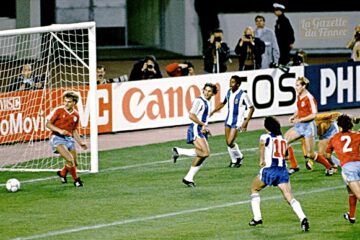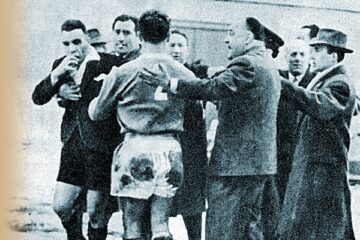Unprecedented cases in communist Albania of clubs in European Cups!
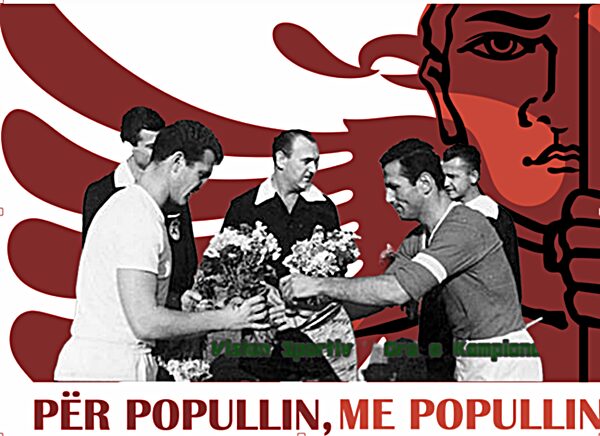
Unprecedented!
Not known!
Experienced or done before!
Dear reader, below we will try to show some of these cases as described above, filled with mystery and experienced in European cup matches between Albanian and European clubs, which took place only in communist Albania during `60-ties through `80-ties!
A mystery that covered Albanian football since its first contact with the world, has always intrigued the public and fans of football all around the World.
The Albanian adventure begins with Kolec Kraja’s (Partizan) first goal against Cologne, continues with the arrival of Cruyff and Ajax in Tirana, with Gim Murati’s goal against Celtic, and the victories of Vllaznia and Partizan against Austria Vienna and Flamurtari`s Vlore with the historic win against Barcelona!
The period 1962-1990 includes the sometimes-ambiguous Albanian refusals to UEFA to play with the Soviets and not only, both from the East, and Western teams. This also includes self-suspensions by the Albanian Football Association and subsequent punishments by UEFA.
This time frame also includes the secret movements without UEFA’s knowledge, of some players “borrowed” from Albanian clubs competing in European cups to make a good performance against European clubs, to the historic qualifications of Flamurtari in the 80s, without forgetting Partizan in Lisbon with a made-up goalkeeper like Genc Tomorri, the punishable actions of players who embezzled and abused in European markets, the escape of others out of fear of the measures taken by the government in power. The positive and negative sides in this almost 30-year journey of Albanian clubs in European Cups!
Geographically located on the borders of southern Europe and on the political fringes of any sphere of influence, the socialist Albania of leader Enver Hoxha was for most of the world an unknown territory, and above all strange.
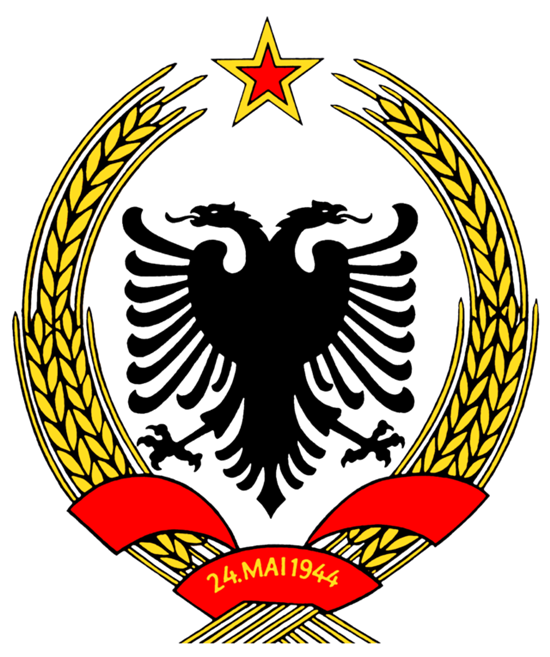
There were few tourists, mainly from the Eastern Bloc countries, who visited the country, who were subjected to some strange rule during their stay in Albania, starting from cutting long hair to shaving, banning beards or long sideburns!
From that hermetically sealed Albania, hardly anything came out in terms of information, any image, video but undoubtedly the people who escaped were considered deserters and enemies of the people and the homeland.
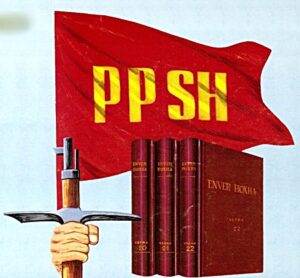
Few enjoyed the rights and approval of the only Party in power to go beyond the borders of Albania as were among the few others favored by the central committee of the Albanian People’s Party (PPSH), including sports teams and musical ensembles!
Sport in general and football were no exception to this isolation.
Strange, often incomprehensible decisions, such as the withdrawal of clubs from the draw for matches due to the opponent, have shrouded Albanian football in a veil of mystery, even though the participation of clubs was sporadic starting in the early 1960s.
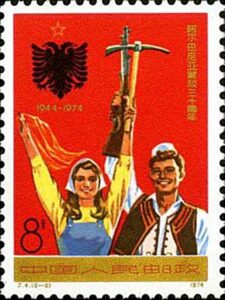
Albania made its first European competition debut in 1962 and did so more to advertise the achievements of the ruling government and party and out of spite than for sport.
It is not clearly known why they not participated in the Champions Cup in that year and not before.

Enver Hoxha and the PPSH had ideologically detached the country from the USSR in 1960 and took every opportunity to challenge its former allies. The Soviets and Albanians had been the only nations to exclude themselves from UEFA club competitions for political reasons until now, so Albania suddenly ending their boycott would have left the Soviets isolated.
Thus, on August 26, 1962 at Idrottsparken, Partizani will open the Albanian teams’ competition in the European Cups by debuting in the Champions Cup against the Swedish team IFK Norrkoping.
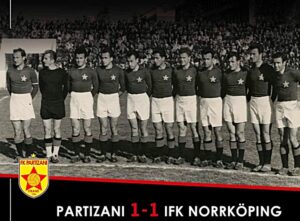
In the return match in Tirana, Partizan achieved a 1-1 draw despite all efforts to overturn the 0-2 disadvantage of the first match.
Every European trip to mysterious Albania was a real gamble and the unpredictable was always around the corner.
It is September 9, 1964
In the first round of the 10th edition of the 1964/65 European Cup, West German side Cologne travel to Tirana to play against Partizan. They have brought their own food and personal chef. When the organizers in Tirana found out about this, a diplomatic incident almost occurred. Cologne manager Julius Ukrainczyk eventually reached a compromise in which the food was allowed, but the chef was immediately sent back. This will open a series of unprecedented……
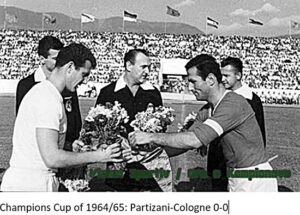
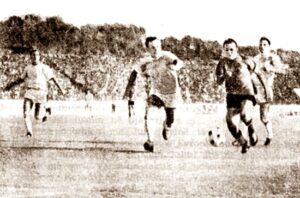
And immediately, on September 8, 1965, the Scots of Kilmarnock would arrive in Tirana for the first match of the Champions Cup of the 1965-1966 season.
The manager of the Scottish club Malcolm McDonald wanted to take 16 players for the challenge against 17 Nentori, but the Albanian side only gave 15 visas, and without any explanation for the exclusion of the 16th player!
Isn’t such a decision strange? What was wrong with the 16th player? Was he a camouflaged agent?
Absurd!
Entry into Albania by air was only permitted via special charter flights, which forced the Scottish group to stop first in London and then in Rome. Among other things, the Albanian side had requested that no planes be allowed to land after dark and, with the delay in departing for Italy, it was uncertain whether the Scottish club would arrive in Tirana before the time set by the local Albanian police.
However, the Scots managed to land at dusk amidst the anti-aircraft batteries of Tirana airport!!!
Furthermore, more interesting than the 0-0 draw of “17 Nentori”, are some memories from the Scottish experience. When the players tried to call home to inform their families that they had arrived safely, it turned out that the phone lines were only active for one hour in the morning and two hours in the afternoon!
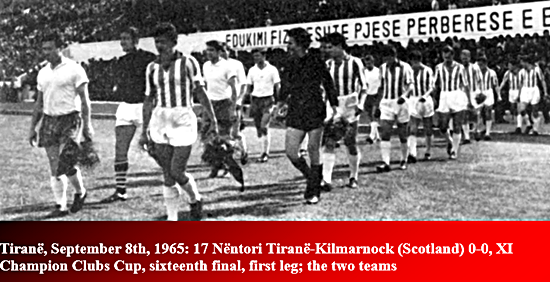
During the match, the club doctor of “Kilmarnock” was completely confused. Every time he went on the pitch to help one of his injured players, he found himself surrounded by a crowd of Albanian doctors in white suits, all ready to help him.
Kilmarnock won the match in Scotland 1-0 and this was a relief for them: before the away goals rule was introduced, play-off matches were played on neutral ground and it was rumored that if the match ended in a draw then Albania had suggested that a third match be played on the soil of their political allies: in China!
European club football, then as now, was based on a few basic principles that participating nations had to adhere to:
1 – Each country had to enter the required number of teams winning the national trophies they came from, and the best ranking of these teams in the respective national championships.
2 – Each season of the European Cups the clubs had to play with whichever opponents the draw determined. Two simple and understandable principles, aimed at preserving the integrity of the competitions and not hostility towards any participating nation.
No other country, except Albania, has ever opposed these two principles.
The first problem arose in 1966, when “17 Nentori” withdrew from the Champions Cup after meeting the Norwegian team “Valerenga” in the first round. Norway was considered an unwanted nation for Albania, the reason for which was not very clear and the reason for this opposition was not given at all clearly by the Albanian side.
Just assumptions, one of several that would arise over the years in the absence of an official explanation from the Albanian federation, the FSHF.
But the truth of this case is as follow below:
It is one of the most negative moments in the participation of albanian club in the European Trophies.
Just a few days before the match against the “Valerengen” team, a “17 Nentori” player, Skënder Halili was arrested in the “Hotel” in the capital Tirana after midnight. He was the key player of the team and at the same time part of the Albanian representative “Kombetare”.
Where the “17 Nentori” team was gathered, the motive for his arrest was because the player had brought some watches for his family members from outside Albania. Whether he had bought them or not, whatever it was, this was not permissible for the one-party state of the ruling party (PPSH) that had made it clear statement.
Just a few days later, the order for “17 Nentori” to not participate in this tournament came. So, not for the reason to consider the Norwegian club an “anwanted”!!!
While the initial difficulties with travel and Albanian oddities were generally considered an acceptable price to pay, unexpected team withdrawals like this seriously undermined the ideal of European club competitions.
Here, however, UEFA had to take into account some precedents. In 1958, Greek champions Olympiacos withdrew from the European Cup rather than face Turkish side Besiktas, while five years later the Greek national team did the same when they met Albania – the two nations were still technically at war – in the qualifying rounds for Euro 1964.
UEFA decided on a “soft” approach: Valerenga was promoted to the next round and “17 Nentori” was mildly reprimanded and urged not to repeat such an act. However, UEFA’s “soft” diplomacy towards Albania did not have the desired effect.
The following season, 1967-1968, Dinamo Tirana was withdrawn under similar circumstances in the first round of the European Cup against West German champions Eintracht Brunswick and again it was difficult to find a concrete reason, especially considering that the Albanian national team had faced West Germany in the 1967 European Championship qualifiers.
Here, a less patient and more irritated UEFA excluded Dinamo from European competitions for a year.
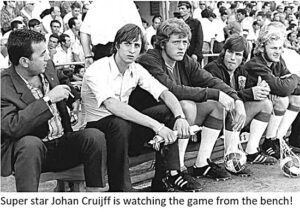
One of the surprises for Albanian football in the Champions Cup was when the draw brought to Tirana the great world-class team, Ajax Amsterdam, with Johan Cruyff, Hulshof, Surbier, Krol, and coach Michels, exactly the team that would change world football!
But the surprise was also on the Dutch side, The “beard rule” for example, surprised Ajax in 1970 when they met “17 Nentori”. .
The Albanian state travel agency informed the Dutch before the match that players would not enter the country if their hair was longer than 1.5 centimeters or if they had a beard. Women in the traveling group were not allowed to wear miniskirts and skirts had to be at least 2.5 inches above the knee.
Ajax president Jaap Van Praag was furious and asked UEFA to exclude the Albanians, but in the end the match took place anyway without the Dutch having to change their looks…
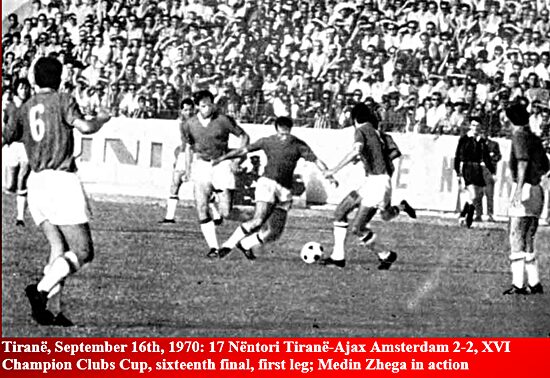
While the teams take to the field with their respective formations, on “17 Nentori”, Kazanxhi, a player who was considered a starter, is not there. Before the match, during a routine uniform check, the Bulgarian referee has found irregularities in Kazanxhi’s shoes, not allowing him to be activated until they are repaired or replaced. In his place, Çeço plays, while the Tirana club’s shoemaker repairs the shoes of the defect noted by the referee.
In the 58th minute, Kazanxhiu enters the game and just a minute later scores the first goal with a header. The non-activation of such a decisive player was initially understood as a tactical trick by the Dutch.
In the return match in Amsterdam, the Dutch are informed of the reason why Kazanxhi had not started the match with the starting lineup. At the end of the meeting, the Dutch club prepared a gift for the Albanian player, a pair of “Adidas” football boots, which Kazanxhi himself could not accept under any circumstances, given the rules that the socialist Albanian government had predetermined.
Between 1973 and 1978, the state of socialist Albania was locked in almost total isolation, leaving Europe in uncertainty about the fate of Albanian football teams. It was a hasty decision by the BFSSH, to withdraw for a period of three years from Europe with clubs and national teams (it is said that the reason was the extremely poor form of the representative team and clubs in international matches).
However, every year rumors spread about an imminent return and the Federation itself announced that it wanted to register participants for the 1977-78 European season. But their request always came “coincidentally” a week after the UEFA deadline.
For the 1971–72 season, three Albanian teams were initially entered into European competitions, a record number, but this seemingly positive step towards greater integration proved false when Vllaznia Shkodër unexpectedly withdrew from their UEFA Cup match against Rapid Vienna.
It seemed a completely arbitrary decision, given that “Dinamo” had already met an Austrian team in the Cup Winners’ Cup and that match had gone smoothly.
Similarly, Partizani Tirana had played Wacker Innsbruck without complications the previous season.
The now standard annual ban was duly handed down to the Albanians, who were not using a standard for all their clubs and opponents determined by the draw. In fact, the truth is somehow different:
With the advent of the UEFA Cup, Vllaznia became the first Albanian team entered in the tournament, but it was later withdrawn from its first-round match-up. Although previous information incorrectly attributed the withdrawal on Austrian immigration officials not giving visas to the team, Vllaznia was actually banned from competing by Albanian authorities, as reported in the Albanian press by members of the team.
This was part of a wider ban involving all sports teams of KF Vllaznia, after its men’s volleyball team came back from a tour in the Albanian region of Kosova with gifts and expensive items, which were strictly regulated or banned under the rule of Communist Albania. Vllaznia was locally excluded for international competitions for two seasons; UEFA, on the other hand, banned Albania from the UEFA Cup for one year, and extended the ban to the European Cup when Vllaznia was not allowed to participate as champions.
In 1978, after five years of international exile, Albanian clubs finally returned, without however giving up their political radicalism.
Precisely in the 1978-1979 season. The reigning champions, Vllaznia Shkoder with great players like Zhega, Bizi, Hafizi as well as those loaned out without UEFA’s knowledge, Safet Berisha (Partizani), the goalkeeper Jani Kaci (Skenderbeu), Shyqyri Ballgjini (Dinamo) will play against Austria Vienna. A surprising result 2-0 in Shkodër with goals from Sh.Ballgjini and Zhega, then a 1-4 defeat in Vienna two weeks later with a goal from A. Hafizi.
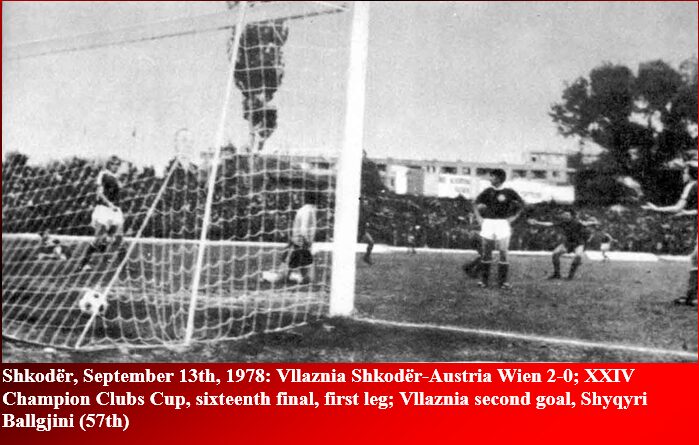
For Vllaznia of Shkodra, it was written that fate would not smile on them. In 1981, the Shkodran club was decided to play against Dynamo Moscow in the Cup Winners’ Cup, UEFA already knew what was coming. For Albania, the Marxist-Leninist revisionists of the Soviet Union were even more hated than the fascist imperialists of the West. There was no chance that this challenge would be played. Along with the withdrawal of Vllaznia from the European trophy comes another punishment for the club, a three-year period ban from UEFA!
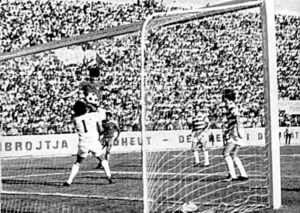
In the Champions Cup season 1979-1980, the draw offers Albanians an unforgettable match: Partizan-Celtic Glasgow, which the Albanian champions won beautifully 1-0 in Tirana, with a spectacular goal, scored with a header by Agim Murati. At “Celtic Park Stadium”, although “Partizani” takes the lead first with an own goal by the locals, the numbers quickly change in favor of the Scottish side (4-1).
With no prominent teams or players to reference during the communist era in Albania, for the typical British football fan, at least one surreal icon became the defining image of the Albanian game – the beard of Scottish full-back Danny McGrain.
McGrain had been drafted to play for Partizan Tirana in the first round of the European Cup in 1979 and, given that they knew little about the team from Albania, the Scottish press’s coverage focused instead on the clash of facial hair cultures. McGrain’s beard was a popular and entirely benign Scottish institution, but in Albania back in time, it represented a grave national threat: facial hair was at the top of the country’s forbidden list, just ahead of long hair, flares and rock music.
A great defender, a pleasant man and an almost incomprehensible speaker, McGrain had struggled with many things, but this was the first time he had been treated as a symbol of Western decadence that could corrupt Albanian youth.
Understandably, he was anxious about himself before he travelled to Tirana, as he later wrote in his autobiography that he would have shaved his beard if he had been asked to.It was not Danny and his beard that were the two factors that contributed to Celtic’s 1-0 defeat.
An unusual obsession with the passions of the visiting players would be the least of UEFA’s problems with Albania. More worrying was the country’s persistent mix of political leanings with a bloodthirsty mentality that made them the continent’s problem children for a quarter of a century!
In the early 1980s, European disillusionment with Tirana’s intransigence reached a fever pitch. Provided the Albanian authorities could find a worthy opponent to face, the strange rules and travel difficulties made life impossible for opponents.
However, and regardless of the British’s lack of knowledge of the players, teams, and football, socialist Albania had strong clubs and players who could play without exaggeration with any European club, but only because of a hermetic isolation brought penalization to football and to the entire Albanian sport.
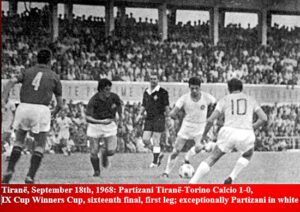
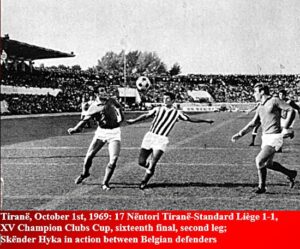
This was best demonstrated by one of the most famous teams in Europe at the time, “Austria” Vienna, who after having previously lost in Shkoder in 1978 (2-0) to Vllaznia, now lost again (1-0) to Partizan in 1981 for the Champions Cup! On a difficult terrain and in a torrential rain, the Austrians, who had core players from their national team, were defeated in that match in all directions.
But on the non-sporting side, if it was already difficult for European players to enter Albania, for journalists it was almost an impossible mission. In an era of technological development and increased television coverage of European matches, the only reports on matches played in Tirana came from Yugoslav journalists following the match on an Albanian shortwave radio. The journey was a real odyssey, with endless flights, stops and strict border controls.
When Linfield faced 17 Nentori in a 1982/83 European Cup tie, club secretary Derek Brooks banned players from carrying cameras, fearing they would be mistaken for spies. Linfield’s trip to Albania seemed a carbon copy of the trips of other European teams over the past 15 years.For in the meantime nothing had changed;the country was a living museum of Stalinism, trapped in its own ideological bubble.
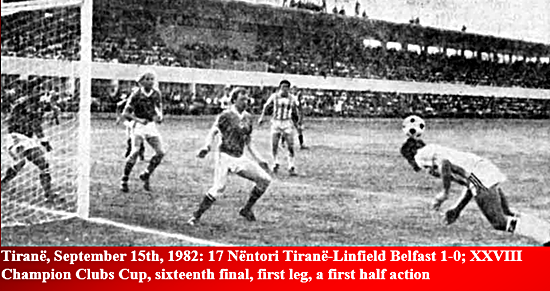
And then there were the regular fixed fees. “17 Nentori” eventually eliminated Linfield but were immediately withdrawn from the second round when Dynamo Kiev were dropped as potential opponents. The annual ban now also carries a fine of 100 Swiss francs.
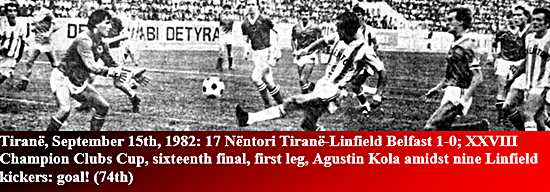
The determination of the other UEFA member countries was strengthened: if Albanian teams wanted to choose their opponents, the “enemy” nations of the Albanians would also have to have the opportunity to exclude the Albanians altogether.
UEFA began to quietly consider the possibility of a wider ban on Albanian clubs, which would have also facilitated the balancing of participants and eliminated the unpopular preliminary round of the Champions Cup. In the end, Albanian clubs were narrowly saved when English clubs were banned after the tragic Heysel disaster in 1985.
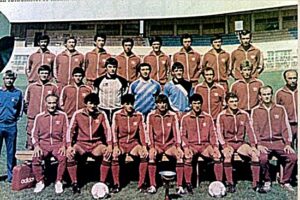
Unfortunately, there is also an episode of these unprecedented cases, which will occur as a result of the completely wrong decisions of a corrupt UEFA`s referee, the Spanish Pes Peres, the protagonist who, due to provocations, also brought about the wrong reaction of the Albanian footballers of Partizan, the reigning champion in 1987, when they were playing a heroic match in terms of defense until the 43rd minute, against the champions of Portugal, the famous Benfica of Eusebio and other stars that this team had produced, which that season after winning against Partizan would reach the final of the Champions Cup, losing on penalties against the Dutch team of PSV Eindhoven.


But to reach the final, Benfica had to overcome the best team in the history of Albanian football, Partizan, in the first round after a match full of controversy and irritated nerves, in a meeting between these two that contains a story of its own for the first 90 minutes held at the “Estadio de Luz” stadium of Benfica on September 16, 1987, the official date of a dark night, unlucky for the red Partizan, but also for the leaders of the time of the elite of Albanian football.
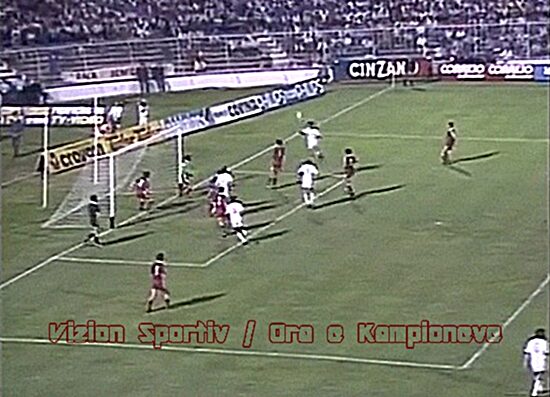
Until the 81st minute, the score was only 1-0 for the Portuguese against a Partizan playing with 7 players, after four red cards and with a invented goalkeeper, the midfielder Genci Tomorri who replaced the number one goalkeeper of the Albanian, Perlat Musta!
Oh, yes this one is an unprecedented case, but for both sides!
Of course, the Albanians’ reaction in this case is reprehensible to the provocations of the referee who was unable to control the match and against whom UEFA should have taken measures as well.
UEFA responded with unusual severity: the return match was canceled; Partizan was expelled from Europe for the next four seasons and the guilty players received heavy suspensions.
After having to tolerate Albania’s problem for a quarter of a century, this was perhaps a truly liberating punishment for the European football authorities.
Regardless of the isolation and the iron fist from the party members who mixed sports with their ideology and politics, which affected and made difficult the progress, development and recognition of football in communist Albania, it must be affirmed that the appearance of Albanian clubs in the European arena was dignified and even some of the Albanian clubs had achieved positive results in the confrontation against the most prominent ones in Europe.
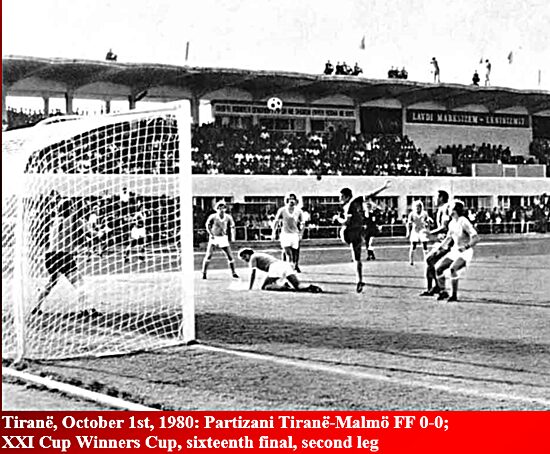
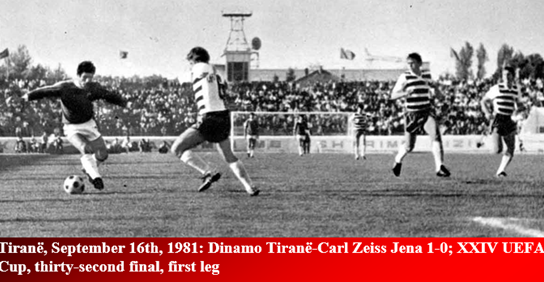
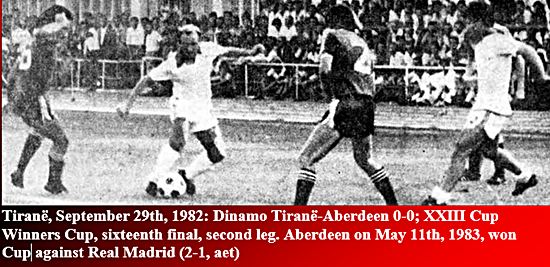

We would like to highlight the participation of Flamurtari of Vlora in the late 80s.
In the 1986-1987 UEFA Cup, although they faced the great Barcelona with 20 championship titles won in Spain, two-time winner of the Cup Winners’ Cup and four-time winner of the UEFA Cup.
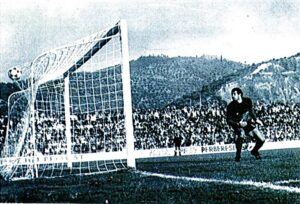
A dramatic 1-1 draw in Vlora on the evening of September 17, where Vasil Ruci for the Vlora team in the 67th minute and Esteban for the Spaniards in the 88th minute of the match were the authors of the goals.
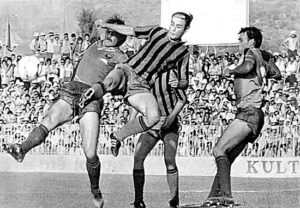
The return match held at the “Camp-Nou” stadium in Barcelona on 01.10.1986 has within it a Flamurtari mobilized to the point of sacrifice to avoid losing. The 0-0 figures at the end of the match were a terrifying qualification for the Catalans that, as the Welsh coach Terry Vinejbelles would admit after the match: “Flamurtari played with great heart and mind. The albanian team returned to his homeland with legitimate pride, also due to the fact that the elimination came from a great Barca after two draws and with the goal value in the opposing field.
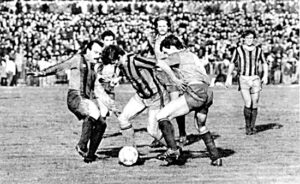
The 1987-1988 season will be remembered for a long time when the team from Vlora reached the 1/16 of the participating teams in the UEFA Cup, after having eliminated Partizan Belgrade in the first round (2-0 and 1-2), in the second round the East German team Bismuth-Aue (0-1 and 2-0) to be stopped in the third round by Barcelona with a 4-1 defeat at the “Camp Nou” and the sensational victory of the team from Flamurtari 1-0 in Vlora. And the balance is like this in the six matches played in this European season Flamurtari has won three matches and lost three matches, with a goal difference of 7 goals scored and 7 goals conceded.
In closing this article, we should not forget some other unprecedented cases:
First of all, some actions unrelated to sports that tarnish the image of the person first and the athlete second. Unpleasant actions of some players of Albanian clubs who appropriated things from the European markets of the countries where they traveled to play matches acts for which an entire country or even a one-party government communist system back at the time cannot be blamed but the individual persons.
Meanwhile, others fled, escaped, driven more by fear of the measures that the communist state would take, but also by the desire to emigrate to the open world, such as the escape of Dinamo player in the 1990-1991 season, Pjerin Noga in France, but also of other athletes, Lulezim Bershemi, Avenir Dani, weightlifters, Aleksander Kondo, Luan Shabani, Pirro Dhima, where the latter two went even further by changing and deforming their names in Greek.
History has also shown that there were players who saved the quota of their income from the club for food , to buy other items with that little money, in western world, like tape recorders, televisions, clothes, etc., as was the example of the Flamurtari of Vlora in Barcelona, Spain, for the UEFA Cup in 1989, who, according to the team’s own players, played the match without eating, on an empty stomach!!!
By Pjerin Bj
New York January 11, 2025
___________________________________
Sports Vision+ Plus / The Champions Hour in activity since 2013
Discover more from Sports Vision +
Subscribe to get the latest posts sent to your email.



